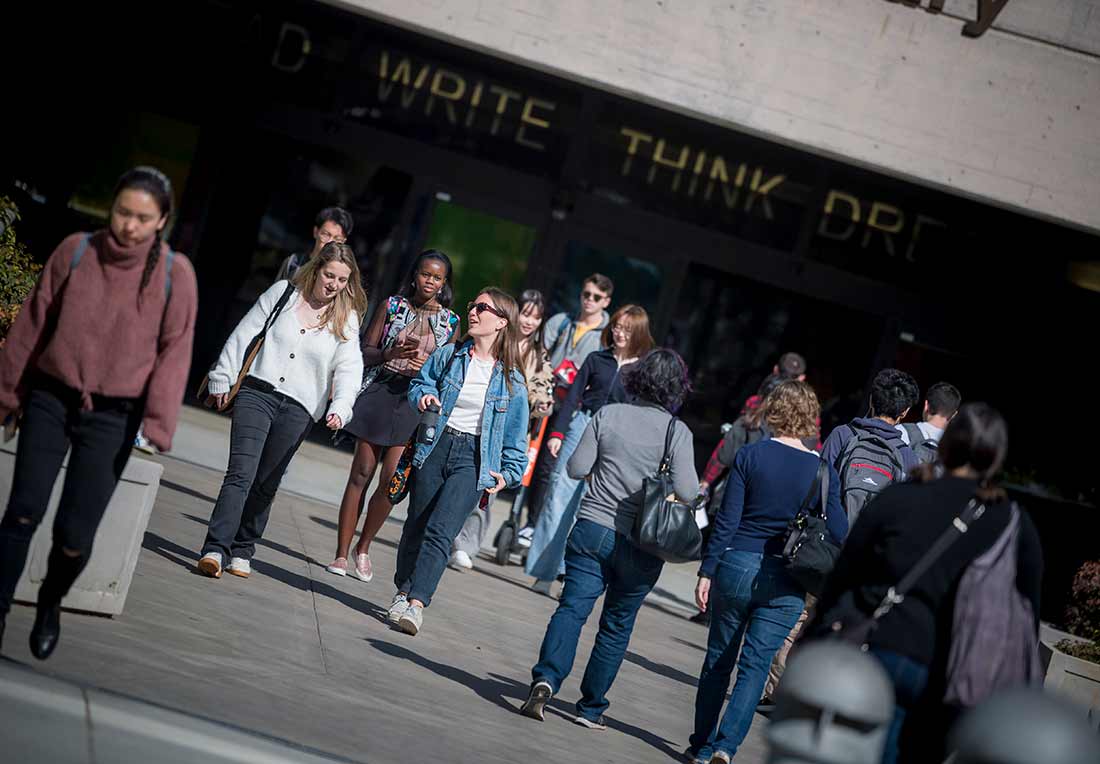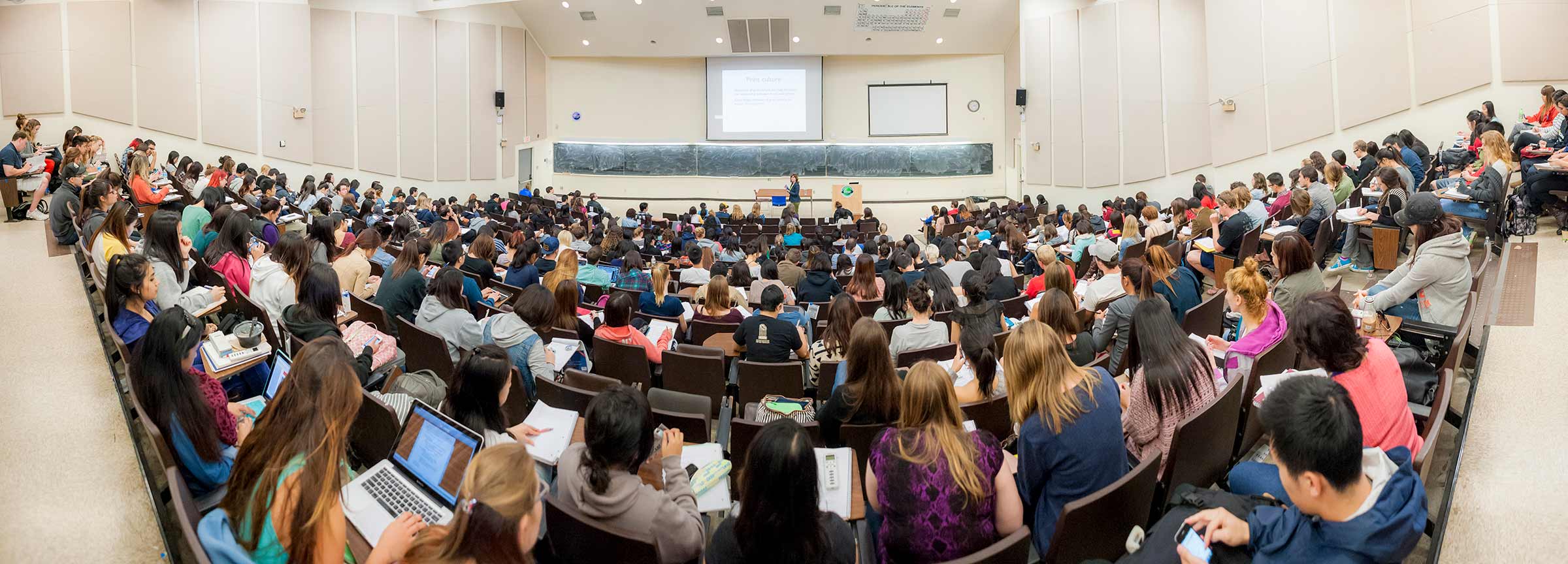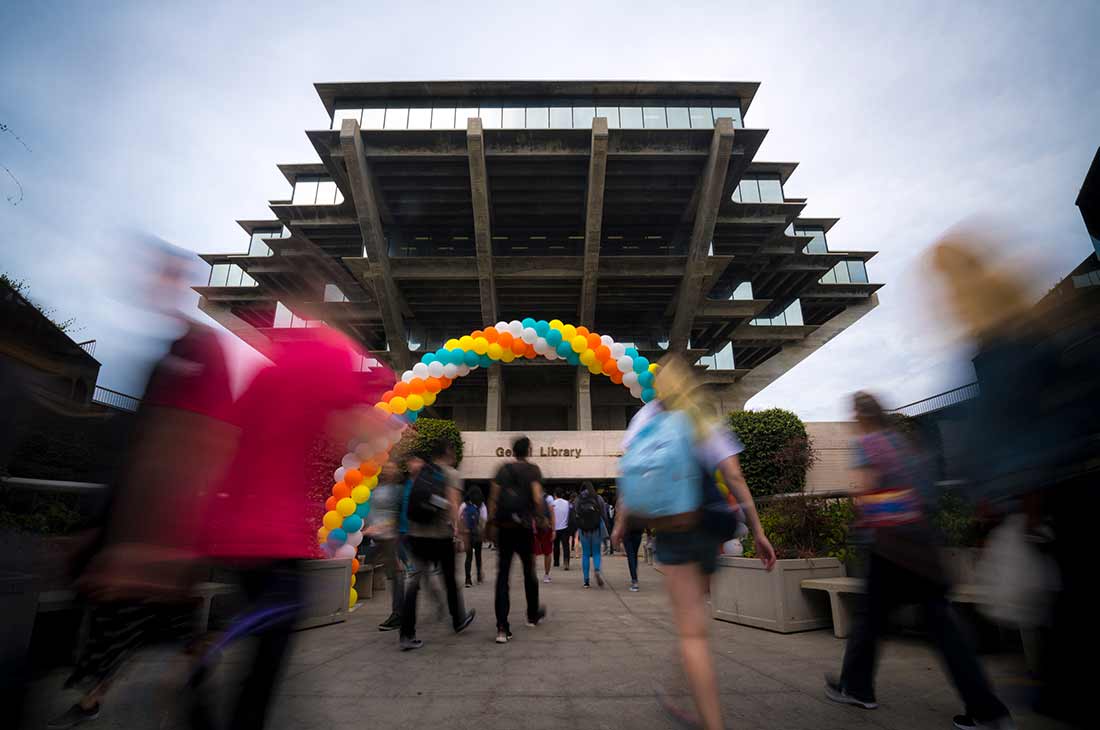By:
- Christine Clark
Published Date
By:
- Christine Clark
Share This:
Closing the Gap: UC San Diego Recognized as Standout in Expanding Access to Low-Income Students

Photos by Erik Jepsen/UC San Diego Publications
The Academy Award-winning movie “Parasite” resonated with audiences around the world with its themes of inequality and class conflict. One of the central characters of the film forges a university document in order to land a job as a tutor. The plot point underscores what societies know to be true: that lack of access to higher education can be one of the main barriers that block people from moving out of poverty.
Ensuring access to low-income students and supporting them through graduation is a central part of UC San Diego’s mission to help bridge the gap and improve the outcomes for all qualified students—regardless of family income.

The campus is among 30 universities in the nation that have teamed up with the American Talent Initiative (ATI) to push to expand opportunity for low-and moderate-income students. UC San Diego added 1,642 Pell students over the last three years, more than any other institution that is part of ATI. The initiative, launched in 2015, recently announced that UC San Diego and other key partner institutions have kept ATI on track to achieve its goal of enrolling 50,000 more students who receive federal Pell Grants in prestigious liberal arts and research universities by 2025.
About 60 percent of all UC San Diego students receive some form of financial aid, and about one-third of students receive a Pell Grant and/or are the first in their family to attend college.
According to ATI, there is a wide chasm in the country between who gets a bachelor’s degree and who does not, and high-graduation-rate colleges and universities such as UC San Diego play an important role in closing this gap.
“We’ve learned that in order to truly expand access to education, admitting more lower-income students is only part of the equation,” said UC San Diego Chancellor Pradeep Khosla. “We need to ensure our high-achieving, low-income students have more support, specific to both their academic and cultural needs. Support is what makes success not only possible, but inevitable.”
Ebonee Williams, interim assistant vice chancellor for student retention and success, added that UC San Diego’s success can be attributed to widespread dedication across campus to maintaining socioeconomic diversity. “There is a visible, concrete commitment to this mission and strategy among senior leaders and trustees and other key stakeholders at every level of the university.”
Award-winning programs seeing students across the finish line
ATI selectively partnered with institutions such as UC San Diego that have graduation rates of 70 percent or higher as well as a comprehensive approach prioritizing need-based financial aid. These selected institutions also ensure that lower-income students are provided with what they need to thrive on campus in an inclusive environment.

UC San Diego’s robust services to support students from diverse backgrounds have gained recognition from ATI and others. The National Association of Student Personnel Administrators (NASPA) recently awarded the university’s Student Success Coaching Program as the Gold Award Winner for the First-generation Student Success and related programs category, and as the overall Grand Bronze Award Winner for the 2020 NASPA Excellence Awards.
The Student Success Coaching program supports a cohort of incoming and continuing students who are first generation through personalized success coaching and by providing opportunities to attend community-building events with faculty, staff and peers.
The program continues to grow and now serves 1,640 first-generation college students, which is about 14 percent of the undergraduate student body.
In addition to mentorship, the program helps scholars achieve their goals by connecting students to high-impact experiences such as internships, research experience, faculty interaction and more.
Kathy Ramirez, a fourth-year student majoring in political science, has been in the program since her first year. The Pell Grant recipient says it has been a transformative experience, which she credits to her overall success.

“As a first-generation student of color, coming from a low-income community where I didn't have a professional network, being a part of the Student Success Coaching Program has provided me with the space and resources to learn more about myself and what I am capable of,” Ramirez said. “The program has provided me with coaches who supported me endlessly, encouraging me to apply to research programs like UC Scholars where I've been able to present my research on Autism Spectrum Disorder among border communities. Additionally, they’ve connected me to pursue professional opportunities such as the UCDC program.”
The Student Success Coaching program has six full time professional success coaches at each of the undergraduate colleges and 18 peer coaches.
“The Student Success Coaching Program is grounded in evidence-based approaches and is a great example of a promising practice on our campus,” said Lindsay Romasanta, the program’s director. “We are proud to collaborate and work alongside our partners in the undergraduate colleges and across campus to provide holistic, student-centered support for our cohort of first-generation college students.”
Share This:
You May Also Like
Stay in the Know
Keep up with all the latest from UC San Diego. Subscribe to the newsletter today.



